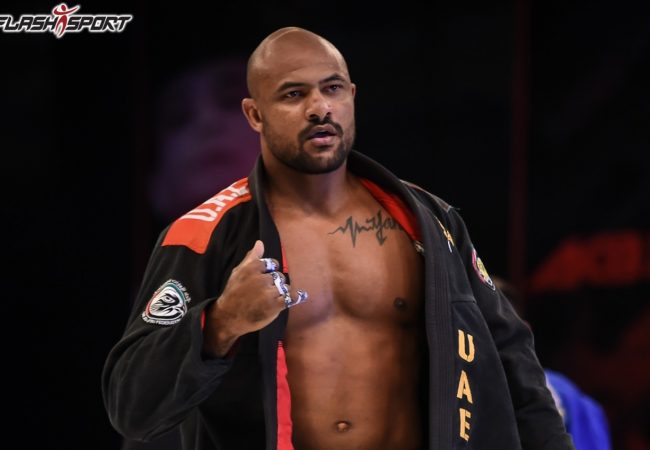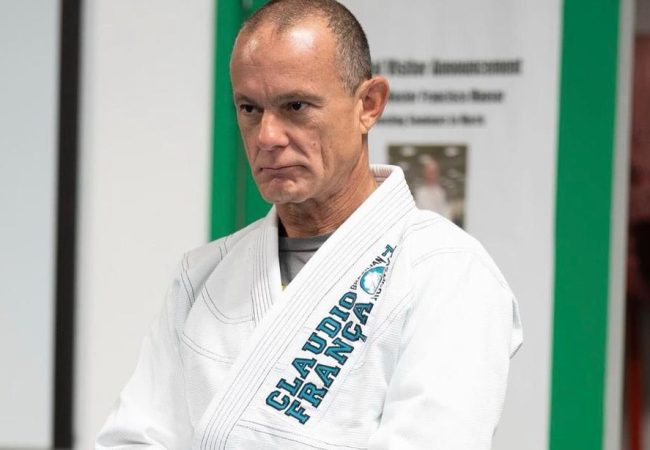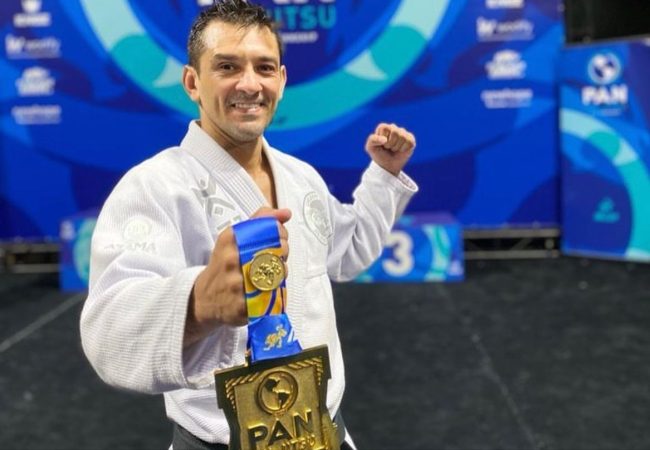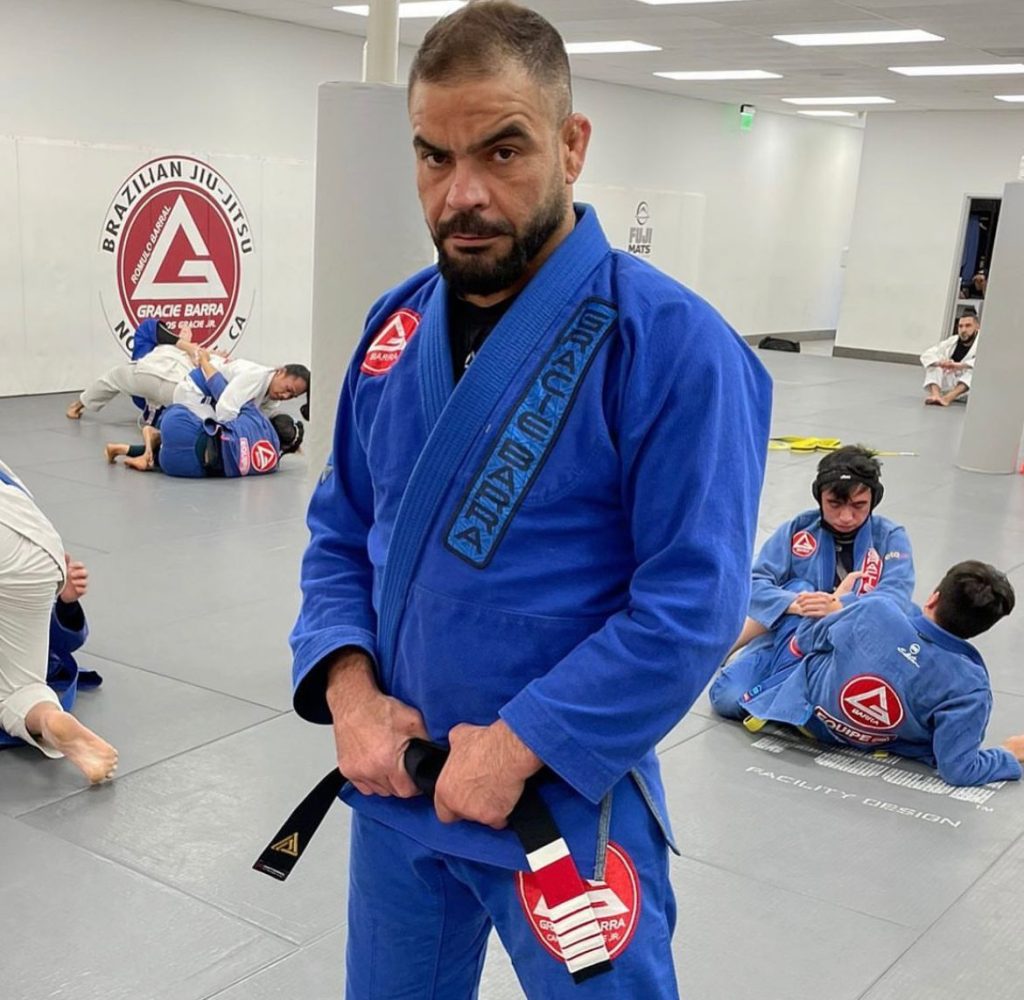
Fabio Trindade is a Jiu-Jitsu professor at Gracie Barra Tarzana. Photo: Reproduction
Fabio Trindade does consistent work as a Jiu-Jitsu professor at Gracie Barra Tarzana, led by champions Romulo Barral and Edwin Najmi and based in Los Angeles, California. A four-degree black belt, Fabio teaches classes to children and adults and draws on his experience as a BJJ and MMA fighter to teach the sport’s key lessons.
Fabio had his first contact with Jiu-Jitsu in 1994, when he was still living in Manaus. He started training to combat the bullying he suffered at school and fell in love with the martial art. “Today, I have a comfortable life as a teacher and I work with what I love. I have the possibility to help my mother and other family members and that is priceless. I paid a high price along the way, but it was worth it,” said Fabio.
In a chat with the GRACIEMAG.com team, Fabio Trindade recalled his beginnings in Jiu-Jitsu and listed the greatest lessons he learned from the competitions.
GRACIEMAG: How did your history in Jiu-Jitsu begin?
FABIO TRINDADE: I had my first experience with Jiu-Jitsu in 1994, in Manaus. I was overweight and suffered bullying at school, my nicknames were “Fabola” and “Bolinha de Sabão”. That made me down and depressed. A friend of mine, Aleks Siqueira, who defended me from the others, already trained Jiu-Jitsu and was a yellow belt at the time. He was the first person who encouraged me to train. I took my first class at Nova União and trained there for three months. However, I left Jiu-Jitsu momentarily to dedicate myself to my childhood dream, which was to be a soccer player. I returned to Jiu-Jitsu in 1997, started training at Associação Monteiro because some friends were part of the team and never stopped.
What are the greatest lessons competitions have taught you?
I often tell my students that you really get to know yourself through competitions. Championships show the real taste of victory. The most important thing is to be able to stay calm and develop your Jiu-Jitsu in that chaotic environment. I was too nervous in the first years of competing. That was a problem for me and it was hard to control. I had the option to give up competing, however, my teachers and my friends helped me deal with the pressure and nervousness at championships. As time passed, I learned to stay calm in the face of adverse situations. Just like life, competition teaches you the ups and downs and these experiences were crucial for me to mature.
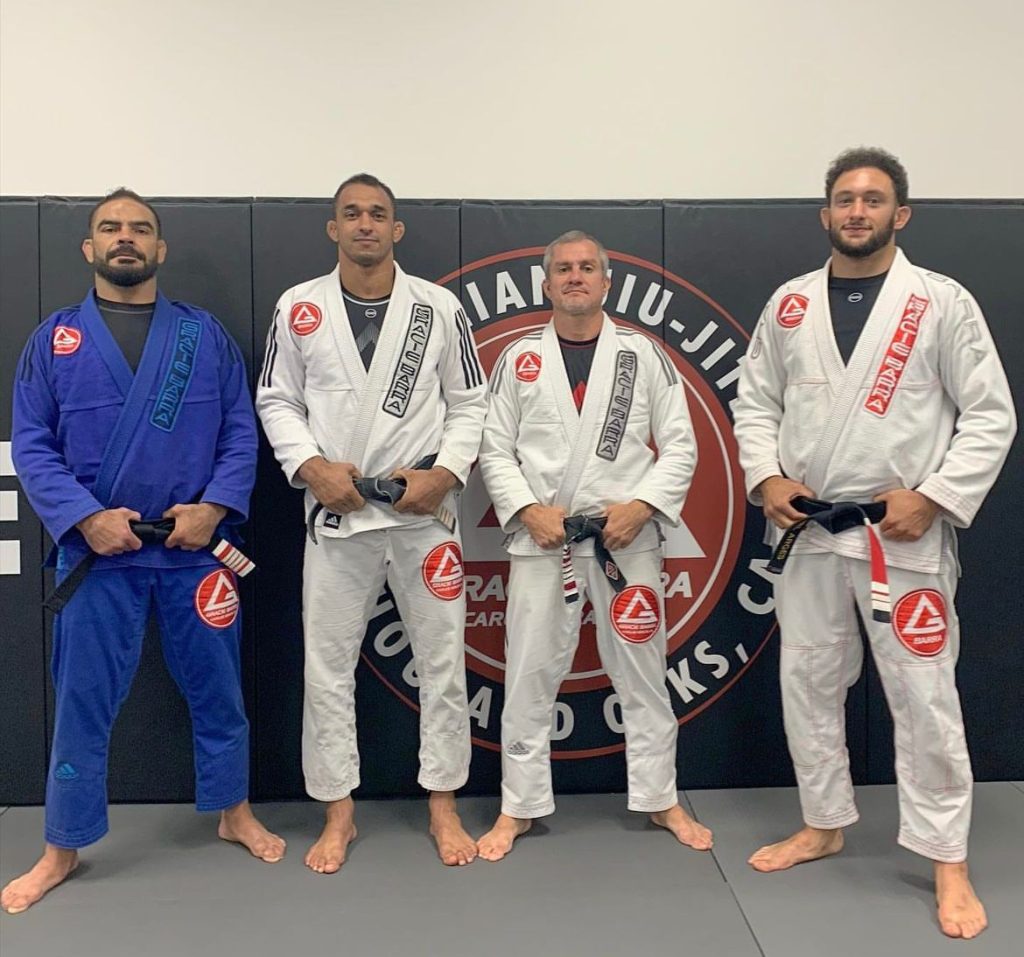
Fabio Trindade, Romulo Barral, Vinicius Draculino and Gabriel Arges. Photo: Reproduction/Instagram
What were your learnings in MMA?
I had wanted to fight MMA since I started in Jiu-Jitsu. My goal was not to enter the UFC, but to test myself and represent BJJ. The preparation, the weight cut and all the other challenges showed me how brave and strong I was mentally and physically to achieve the goals. I was able to apply in MMA several lessons I learned in BJJ, such as dealing with adverse situations and believing in victory until the end. MMA, as well as Jiu-Jitsu competitions, were fundamental to my personal and professional growth. I have eternal gratitude to my teachers for trusting me and believing in my potential.
What benefits does your work provide to the American community?
I am a Jiu-Jitsu teacher for children and adults at Gracie Barra Tarzana in California. In addition to introducing the concepts and positions of BJJ, I teach them self-defense techniques, because it is essential to know how to defend yourself, especially in this day and age with the increase in street violence. I have also started the process of forming the children’s competition team. As for adults, I have several police and firefighter students and they always emphasize the importance of Jiu-Jitsu in real situations. I am also a teacher of a brown belt with autism. Nowadays, he is my helper in the children’s class and he is the first person to open the doors to new students, especially for those who have a disability. My experience and my way of teaching add a lot of value to the American community.
When did you realize that you would live for Jiu-Jitsu?
I had already intended to make a living from BJJ since 1998, when I was a blue belt and lived in Manaus. It is still difficult to live exclusively from BJJ in Brazil. At the time, I dedicated myself to my studies and got a good job with administration and logistics. But that was not what I wanted for my life. I dreamed of making a living from BJJ, that’s when I moved to the United States and started fighting MMA. Here I realized how much my profession is valued and respected. Today, I have a comfortable life as a teacher and I work with what I love. I have the possibility to help my mother and my other family members and that is priceless. I paid a high price along the way, but it was worth it.
What makes you fulfilled as a professor?
My main mission is to teach Jiu-Jitsu to that student who is very shy, has no sports ballast and who most people would doubt his potential. I have daily contact with students of different ages, from children to the elderly. I am a professor in Romulo Barral’s team and there I have a 74-year-old black belt student. He started training at the age of 65 and is there every week. It’s a pleasure to see the development of my students. There is a lesson I always tell them: it’s good to be great, but it’s even better to be a good person, help your neighbor and be respectful.


